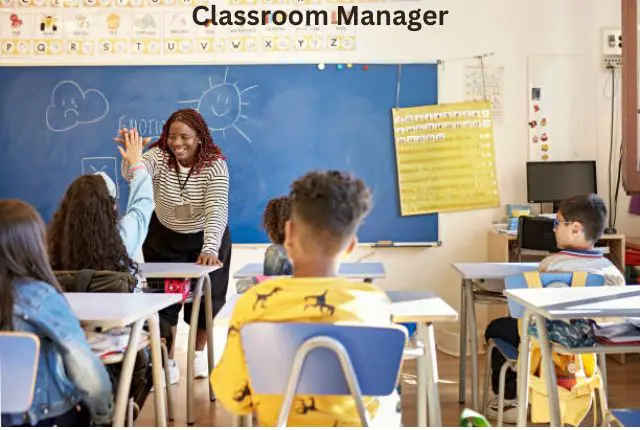We are pleased to present to you the Seven Roles of a Teacher in South Africa.

From my own perspective ehn, teachers are one of the most underrated professions in the world especially South Africa. You see all these doctors, lawyers, accountants etc, cant be where they are without the help of a foundation and that foundation is the teacher. In essence, learners today need the help of a teacher for a brighter tomorrow, and in turn, a better nation. Let’s touche this wonderful profession a bit by calling them “educators”. From this angle, they wear many hats as sacrifices for learners or students to receive a well-rounded education.
Therefore, in this article we are going to be focusing on the seven roles of a teacher in South Africa and other related topics like teaching jobs, salaries, and alternative career opportunities for educators.[mfn]Kimathi, Faith, and Lee Rusznyak. “Advancing Professional Teaching in South Africa: Lessons Learnt from Policy Frameworks That Have Regulated Teachersâ€TM Work.” Education as Change, vol. 22, no. 3, 2018, pp. 1–25, doi:10.25159/1947-9417/4042.[/mfn]
Without further ado, let’s look at the 7 essential roles of a teacher in South Africa:
1. Educator and Subject Specialist
The job of a teacher is more or less like a subject specialist because you have a very deep understanding of the subject you want to teach. In this context, as a teacher, you are expected to:
- Demonstrate expertise in their subject area.
- Create engaging and effective lesson plans.
- Differentiate instruction to cater to diverse learning needs.
Mastery of Subject Matter
As stated earlier, you won’t want to go and disgrace yourself by going to the classroom to teach what you don’t have an understanding of. So it is very necessary that you have a proper understanding of the subject you want to teach because it helps you as a teacher to be clear and concise when presenting your information to students and learners and in turn making it easy for them to understand.
Effective Lesson Planning and Delivery
Preparation is key in everything you do in life. So as a teacher, you need more of it in laying out your lesson notes in line with the South African Department of Education’s curriculum and objectives. To do this, you must consider these factors:
- The students’ prior knowledge and skills.
- Available resources and materials.
- Varied teaching strategies to engage all learners.
Adapting to Diverse Learners
Another thing to consider as a classroom teacher is that the students or learners you are or will be teaching have different learning styles, abilities, and cultural backgrounds. Therefore, your teaching strategy must be able to accommodate all these differences for the purpose of promoting inclusitivity and student success.
2. Classroom Manager

Hmmm… Effective classroom management is another role that is indeed indispensable if a positive learning environment is to be achieved. A teacher as a classroom manager is responsible for:
- Establishing routines and expectations.
- Managing student behavior and discipline.
- Creating a safe and supportive space for learning.
Establishing Routines and Expectations
I take this personal as a writer because it helps me gain stability and organization. In the same vein, as a classroom manager, creating a schedule and setting goals before you start anything in the class helps you gain this sense of stability and predictability. This in turn is transferred to students as they understand what’s expected of them and can focus on learning rather than navigating unclear expectations.
Managing Student Behavior and Discipline
This next point is very key and this has to do with addressing behavioural issues in a very fair and consistent manner. In order to tackle this issue, teachers should set clear rules, consequences, and rewards, for the purpose of promoting self-discipline and accountability among students.
Creating a Safe and Supportive Learning Environment
Nurture and inclusivity is key as it creates a safe and supportive learning environment. As a result of this, students can take risks and engage in learning. In this context, it is the duty of the teacher to create a space where students feel valued, respected, and safe to express their thoughts and ideas.
3. Mentor and Role Model
If I am a teacher, out of the seven roles, this part is the one I would like the most. The reason, I am saying this is because teachers as mentors and role models is a once in a life time opportunity to positively influence students’ lives both inside and outside the classroom. You might be wondering as a teacher how to achieve this. It’s easy and simple. Here is how:
- Fostering positive relationships with students.
- Encouraging personal growth and development.
- Demonstrating good citizenship and ethical behavior.
Fostering Positive Relationships with Students
The first step in achieving being a role model as a teacher, is creating the trust and rapport with students for emotional and social well-being. But note, this action should be genuine as it is important that the students see it as you having an interest in their lives, offering guidance, support, and encouragement when needed.
Encouraging Personal Growth and Development
Inspiration is another way of being a mentor. Inspiring students to always yearn for personal and academic excellence is key. Always help them set that high standard and expectations as well as giving them feedback. The result of these is making the student recognize their potential and work towards achieving their goals.
Serving as an Example of Good Citizenship
Values and principles are part of the qualities you find in a successful mentor. So as a teacher, you must be able to model the same if you wish to instill it in your students. Ethical behaviour, empathy, and community involvement are the evidence of exemplifying good citizenship.
4. Collaborator and Team Member
Isolation is not part of the role of a teacher. In that sense, their role is to work or collaborate with close colleagues and other school staff for the purpose of providing a cohesive educational experience for students. In this context, these responsibilities include:
- Participating in professional learning communities.
- Contributing to school improvement initiatives.
- Sharing resources and ideas with fellow educators.
Participating in Professional Learning Communities
There’s what we call Professional Learning Communities (PLCs). The PLCs aid teachers a chance to collaborate, share best practices, and engage in ongoing professional development. Doing this makes them consistently sharpen their skills and stay ahead of the teaching game.
Contributing to School Improvement Initiatives
Schools we all know are not a finished product, it keep improving. Therefore, teachers are needed for this purpose by providing their services on committees or participating in the school’s learning environment, curriculum, or student support projects.
Sharing Resources and Ideas with Fellow Educators
Working together as teachers or educators helps in the sharing of resources, ideas, and teaching strategies. It also creates a more efficient and productive learning experience for the students.
5. Assessor and Evaluator
As a crucial Assessor and Evaluator, teachers must:
- Monitor student progress.
- Provide constructive feedback.
- Adapt instruction based on assessment results.
Monitoring Student Progress
Teachers must consistently assess their students’ understanding of the subject matter. This can be done through formative and summative assessments, allowing teachers to gauge how well students are grasping the material and identifying areas that need improvement.
Providing Constructive Feedback
Feedback is essential for helping students grow and improve. Teachers should provide timely, specific, and actionable feedback that helps students understand their strengths and areas for development.
Adapting Instruction Based on Assessment Results
Assessment results inform teachers about the effectiveness of their instruction. They must be prepared to adapt their teaching methods and strategies based on student performance, ensuring that all learners have the opportunity to succeed.
6. Planner and Organizer

Teachers must be skilled in planning and organization, as they juggle numerous responsibilities. These include:
- Administrative duties of a teacher in South Africa.
- Coordinating with other educators and staff.
- Planning school events and activities.
Administrative Duties
In addition to their instructional roles, teachers must also handle various administrative tasks, such as record-keeping, grading, and reporting student progress. They must ensure that all necessary documentation is accurate and up-to-date.
Coordinating with Other Educators and Staff
Teachers must work closely with other educators and staff members, such as special education teachers, counselors, and support staff, to ensure that students receive comprehensive support and services.
Planning School Events and Activities
Teachers may also be involved in planning and organizing school events and extracurricular activities, such as field trips, sports competitions, and cultural events. These activities enhance students’ educational experiences and promote social and emotional growth.
7. Lifelong Learner and Professional Developer
To remain effective educators, teachers must commit to ongoing professional development. This includes:
- Stay updated with changes in curriculum and teaching methods.
- Participating in professional development opportunities.
- Engaging with teacher unions in South Africa for support and advocacy.
Staying Updated with Changes in Curriculum and Teaching Methods
Curriculum and teaching methods continually evolve. Teachers must stay informed about these changes and adapt their instruction accordingly to provide the best possible education for their students.
Participating in Professional Development Opportunities
Teachers should actively seek out opportunities for professional growth, such as workshops, conferences, and online courses. By doing so, they can stay current with the latest educational trends and enhance their teaching skills.
Role of Teacher Unions in South Africa
Teacher unions in South Africa provide support and advocacy for educators. They ensure that teachers’ rights and interests are protected while also promoting professional development and growth.
The Demand for Teachers and Teaching Jobs in South Africa

- Are teachers needed in South Africa?
- How many teachers are in South Africa?
- How to get a teaching job in South Africa?
South Africa has a growing need for qualified teachers. This demand is driven by factors such as population growth, educational policy changes, and teacher attrition. To secure a teaching job, candidates must possess the required qualifications, such as a Bachelor of Education degree or a Postgraduate Certificate in Education, and register with the South African Council for Educators (SACE).
Teacher Salaries and Alternative Career Opportunities
- How much is a teacher’s salary in South Africa?
- What other jobs can teachers do in South Africa?
Teacher salaries in South Africa vary depending on factors such as experience, qualifications, and location. On average, a teacher’s salary ranges between R20,000 and R320,000 per year.
In addition to traditional teaching roles, educators may also explore alternative career opportunities within the education sector. These include:
- Curriculum development
- Educational consulting
- School administration
- Special education
- Educational research
Conclusion
The seven roles of a teacher in South Africa highlight the diverse responsibilities that educators must fulfill in their daily work. From subject experts and mentors to classroom managers and lifelong learners, teachers play a pivotal role in shaping the future of South African society. By understanding and embracing these roles, educators can better prepare their students for success and contribute to the ongoing development of the nation’s educational landscape.




